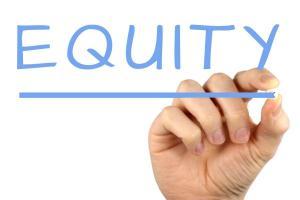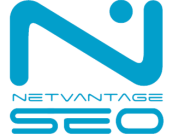Last Updated on September 13, 2018 by admin
 Link equity, also commonly known as “link juice”, is a frequently used term to describe the way in which a link can pass authority from one page to another. Link equity can be passed along to a webpage from both internal links (links coming from the same website) and external links (links coming from another website).
Link equity, also commonly known as “link juice”, is a frequently used term to describe the way in which a link can pass authority from one page to another. Link equity can be passed along to a webpage from both internal links (links coming from the same website) and external links (links coming from another website).
Link equity is tied to PageRank – Google’s original algorithm that used a website’s backlink profile to determine search engine rankings. PageRank works by assuming that the most important websites will be the ones that receive the most links from other websites. These websites will then be the websites that users most likely want to see in search results.
While the structure of PageRank has gotten a lot more complicated over the years, and there are many more factors that play a part in determining a website’s appearance in search results pages, there’s no question that link equity and the value that links pass along to a website should be a high SEO priority for any website.
What Influences Link Equity?
Follow or No-Follow links
Links that use the nofollow tag are not crawled or “followed” by search engines. These will not pass link equity.
Link Relevancy
If I link to a website about car engine parts from a page about homeschooling tips, that link will likely not pass along much value. Google understands relevancy more than ever, so it is important to know that links will only pass value if they are considered relevant and are of practical use to a real person.
If the page is indexed
If your website is linked to from a webpage that is not in Google’s index, then you are likely not benefiting from the link. The page may not be in Google’s index for a variety of reasons. The webpage being buried in a website, Google choosing not to index the webpage or the entire website, or there may be instructions provided by the website to search engines asking them not to crawl or index a given webpage.
Overall Strength of the linking page and linking website
A link from the New York Times’ website will likely carry more weight than a link from your local newspaper. Also, a newer website may have less authority than a well established website. There are a few ways to get a sense of a website’s or webpage’s authority ….
How Do I Check Link Equity?
There are a number of free and paid tools that you can use to gauge an estimate of a link’s authority and relevance to your website. Majestic, aHrefs, and Moz are a few of the most popular tools that give a score to a website’s perceived authority and trust-worthiness.
How do I avoid losing link equity?
Find Internal Broken Links
Does your website have broken links? You can find out with a tool like Screaming Frog SEO Spider – it crawls a given URL and reports the status of any links that it finds.
Fix Old URL Addresses
If you’ve ever changed the URL address of a page in the past, there may be other websites that are still linking to that page.
You can use Majestic’s Top Pages report to find all pages on your website that have links from external sites pointing to them. If there are any pages in the report with a 4xx status, it’s a good idea to create 301 redirects to the proper location or to reach out to the website owners to ask them to fix their broken links.
Another good way to find 404 error pages is by looking at Google Search Console’s crawl errors report for your website.
Avoid Multiple Versions of the Site or pages
A common SEO mistake that websites need to fix is having duplicate versions of a website or a page. This often happens where there are multiple live versions of the home page or when multiple versions of the site are live. Here are a few examples:
- http://www.example.com and http://www.example.com/index.php
- http://www.example.com and http://example.com
- https://www.example.com and http://example.com
The problem arises when internal and external links are created to different versions of the same page. This diminishes the overall strength of the primary URL that ends up getting displayed in search results and often hinders rankings for keywords.
If it is not possible to redirect duplicate versions of pages to their preferred location, canonical tags should be set up.
How do I improve link equity?
Leverage Internal Links
Google pays close attention to the internal links on your website. It’s an indication of what pages you choose to refer your users to while navigating your website.
If you have a high value service page that you want to show up well in search results, it’s probably a good idea to incorporate that page in your website’s navigation or find a way to increase the number of internal links pointing to that page.
Again, Screaming Frog is a great tool to give you a sense of internal links pointing to a particular page and the anchor text used for those links.
Here’s a great guide on internal linking.
Acquire Links From External Websites
Easier said than done, but the most effective way to improve your website’s authority is through link building. There are many different sources to tap for links and many methods to do so. We’ve written many posts in the past on link building:
- 10 Local Link Building Opportunities
- Link Building Tips to Improve Efficiency
- Sources of Link Building Inspiration
- Tips for Refining Link Prospects
- Improve Your Link Building Outreach
- Misconceptions About Link Building
Looking for additional help on link building? Give us a call or send us an email – we help businesses of all types improve their backlink profiles and increase their website traffic via search engines.
Image Credit

Leave a Reply